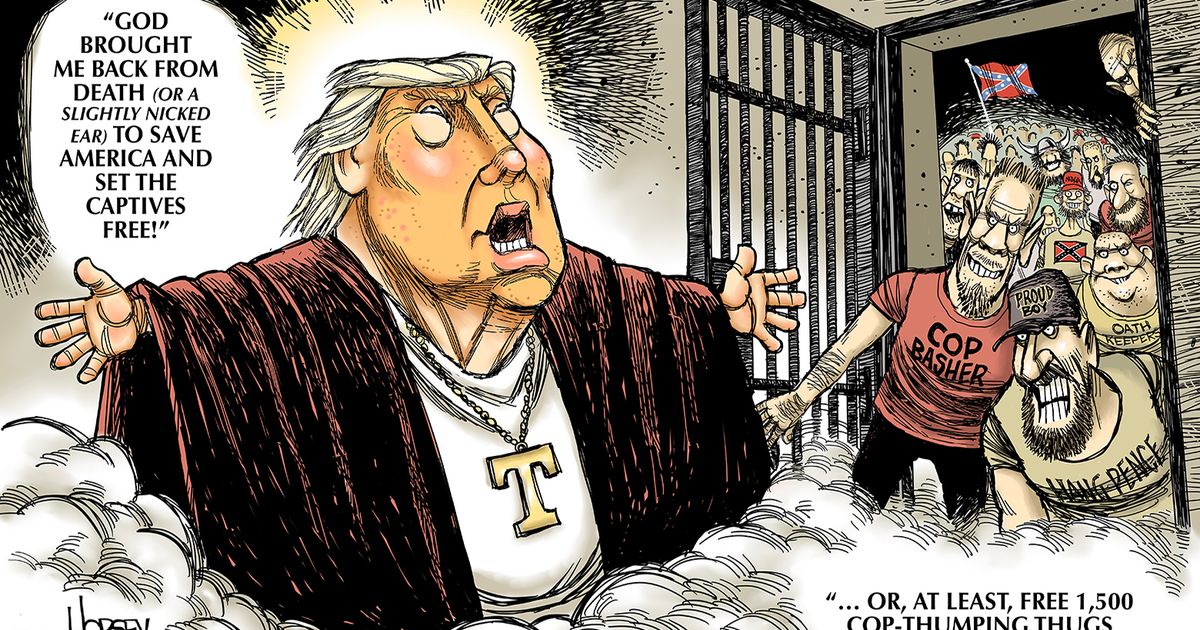Neo Classical:
Trump’s invention in this passage relies heavily on pathos- using charged and evocative imagery to elicit anger and feelings of disenfranchisement from the listener. The phrase “extracted power and wealth” positions the government as the source of economic frustrations while “pillars of our society lay broken” paints a bleak and vivid image, invoking symbolism to create an almost mythic sense of hopelessness.
This emotional appeal heightens the stakes of the moment and primes the audience for a savior narrative, effectively establishing Trump's credibility. Trump builds ethos by positioning himself as the only figure willing to expose these abuses- by naming the enemy he presents himself as morally courageous. In a classical sense, this passage aims to establish trust through shared outrage and moral alignment with the audience.
Fantasy Theme:
By portraying a long-standing elite force that has "extracted" resources from the public, Trump casts the American people as innocent victims in a narrative of systemic betrayal. Creating a clear villian as well as a clear hero- himself. The metaphor of “pillars... broken and in disrepair” utilizes symbolism to insinuate a narrative of total institutional collapse to position Trump in a position to correct the "disrepair" he cites.
Nathan Crick compiles a collection of works regarding Facist and Nationalistic values in his, How to Spot a Fascist: A Review of The Rhetoric of Fascism. The sentiments here shed light on the context of Trump's rhetoric and his use of these fantasy cues-
in explicating his work, Carlee E Baker cites that-
The “trope of carnage” and the resultant evocation of the “trope of manly consciousness” play upon many of the same assumptions that “Make America Great Again” does, where Trump presents the current state of the U.S. in terms of catastrophe and disaster, calling upon fears of societal decline felt among the Alt-Right and legitimizing the threat of violence and intimidation. The “trope of betrayal” appears most clearly in Trump’s open anti-intellectualism and disdain for “the elites.” His utilization of the “trope of specious nomenclature” works as an exclusionary rhetorical tactic intended to mark the Other as definitionally excluded from the meaning of “American.” Hartnett explains that these two tropes involve a subtle but persistent degradation of Others that works to “‘[deliver] the poison of prejudice in small but increasing doses” (48). At the heart of the use of each of these tropes in public political rhetoric is an appeal to fear, strong enough to motivate threats of violence at the behest of the former President.
https://constell8cr.com/issue-6/the-rhetoric-of-fascism/
